
Two lesbians and child murdered in Najaf
Four barbers abducted from shop popular with gays
Fundamentalist death squads target queers
London and Baghdad – 6 December 2006
Five gay activists were abducted at gun-point by Iraqi police inBaghdad on 9 November. Nothing has been heard of them since then. Itis feared they may have been murdered by death squads operating underthe cover of the Iraqi police.
The kidnapped men are Amjad 27, Rafid 29, Hassan 24, Ayman 19 and Ali21. All were members of Iraq’s clandestine gay rights movement, IraqiLGBT (Lesbian, Gay, Bisexual and Transgender).
“For the last few months they had been documenting the killing oflesbians and gays, relaying details of homophobic executions to ouroffice in London, and providing safe houses and support to queersfleeing the death squads,” said Ali Hili, a gay Iraqi Muslim who ishead of Iraqi LGBT and Middle East spokesperson for the British gayhuman rights group OutRage!
At the time of the police raid, the five men were holding a secretmeeting in a safe house in the al-Shaab district of Baghdad. They werecommunicating with Mr Hili.
“Suddenly there was a lot of noise, then the connection ended,”recalls Mr Hili.
Just days after these five activists were abducted, Haydar Kamel, aged35, the owner of famous men’s clothing shop in the al-Karada districtof Baghdad, was kidnapped near his home in Sadr city. The kidnapperswere members of the Mahdi army, an Islamist militia loyal tofundamentalist leader Muqtada al-Sadr.
“Haydar had previously received death threats because of rumours abouthis alleged homosexuality. For many months, he had financiallysupported several men who were in hiding after they had beenthreatened by death squads because of claims that they were gay,” saidMr Hili.
Another recent raid was on the Jar al-Qamar barber shop in theal-Karada district of Baghdad. It was popular with gay men, which isprobably the reason it was targeted. All four employees were arrestedand taken away by the Iraqi police. They have disappeared.
It is feared that these 10 kidnapped men have been summarilyexecuted.
“These disappearances are the latest ‘sexual cleansing’ operationsmounted by extremist Islamist death squads, many of whom haveinfiltrated the Iraqi police,” notes Mr Hili. He has obtained detailsof the kidnappings direct by phone and email from his undergroundIraqi LGBT activist colleagues in Baghdad.
“They are systematically targeting gays and lesbians forextra-judicial execution, as part of their so-called moralpurification campaign. The aim of the death squads is the creation ofa fundamentalist state, along the lines of the religious dictatorshipin Iran,” said Mr Hili.
Earlier, in June this year, extreme lslamist death squads burst intothe home of two lesbians in the city of Najaf. They shot them dead,slashed their throats, and also murdered a young child the lesbianshad rescued from the sex trade.
The two women, both in their mid-30s, were members of Iraqi LGBT. Theywere providing a safe house for gay men on the run from death squads.By sheer luck, none of the men being given shelter in the house wereat home when the assassins struck. They have now fled to Baghdad andare hiding in an Iraqi LGBT safe house in the suburbs.
“These homophobic kidnappings and murders are a snapshot of therapidly growing power and menace of fundamentalist death squads,”added Mr Hili.
“Gays are not their only targets. They enforce a harsh interpretationof Sharia law, summarily executing people for listening to western popmusic, wearing shorts or jeans, drinking alcohol, selling videos,working in a barber’s shop, homosexuality, dancing, having a Sunniname, adultery and, in the case of women, not being veiled or walkingin the street unaccompanied by a male relative.
“Two militias are doing most of the killing. They are the armed wingsof parties in the Bush and Blair-backed Iraqi government. Badr is themilitia of the Supreme Council for Islamic Revolution in Iraq (SCIRI),which is the leading political force in Baghdad’s governmentcoalition. Madhi is the militia of Muqtada al-Sadr.
“Both militias want to establish an Iranian-style clerical tyranny.They have a perverted, corrupt and violent misinterpretation ofIslam.
“The allied occupation of Iraq is bad enough. But victory for theMadhi or Badr militias would result in a reign of religious terrormany times worse.
“The execution of lesbian and gay Iraqis by extreme Islamist deathsquads and militias is symptomatic of the fate that will befall allIraqis if the fundamentalists continue to gain influence. The summaryexecution of queers is a warning of the barbarism to come.
“Saddam Hussein was a tyrant. It is good that he is no longer inpower. I don’t want him back. But under Saddam discrete homosexualitywas usually tolerated. There was no danger of gay people beingassassinated in the street by religious fanatics.
“Since Saddam’s overthrow, the violent persecution of lesbians andgays is commonplace. It is actively encouraged by Iraq’s leadingMuslim cleric, the British and US-backed Grand Ayatollah Alial-Sistani. In late 2005, he issued a fatwa ordering the execution ofgay Iraqis. His followers in the extreme Islamist militias are nowsystematically assassinating lesbian, gay, bisexual and transgenderpeople,” said Mr Hili.
“Despite the great danger involved, Iraqi LGBT has established aclandestine network of gay activists inside Iraq’s major cities,including Baghdad, Najaf, Karbala, Hilla and Basra,” said PeterTatchell of the UK-based LGBT rights group OutRage!, which is workingwith Iraqi LGBT.
“These courageous activists are helping gay people on the run fromfundamentalist death squads; hiding them in safe houses in Baghdad,and helping them escape to Syria, Jordan and Lebanon.
“The world ignores the fate of gay Iraqis at its peril. Their fatetoday is the fate of all Iraqis tomorrow,” said Mr Tatchell.
* Iraqi LGBT is appealing for funds to help the work of their membersin Iraq. They don’t yet have a bank account. The UK gay rights groupOutRage! is helping them. Cheques should be made payable to“OutRage!”, with a cover note marked “For Iraqi LGBT”, and sent toOutRage!, PO Box 17816, London SW14 8WT, England, UK.
More information:
Ali Hili – 079819 594 53
Web:



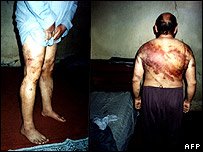
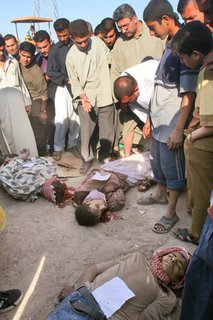




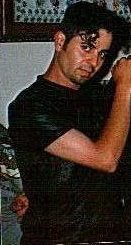




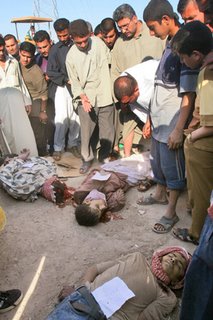
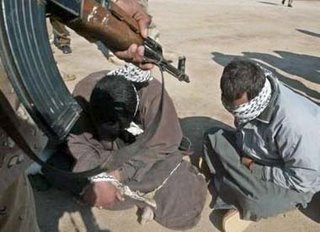






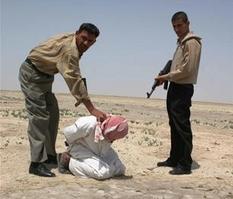

 group
group